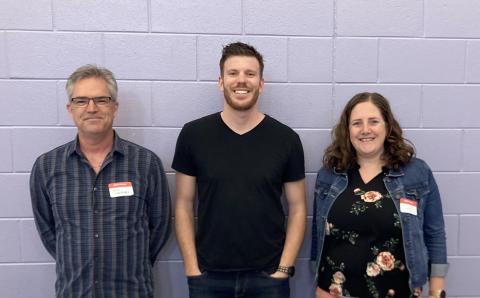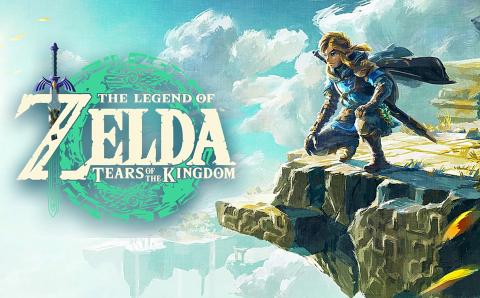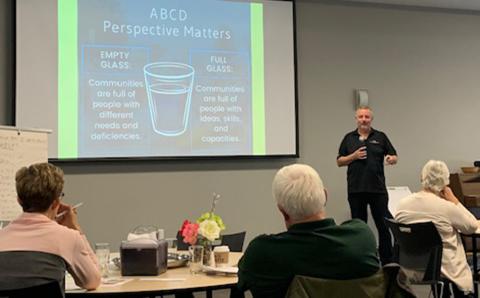There’s mystery in what makes people wise. Age and experience are certainly part of the equation, but I’ve noticed many “mature” individuals seem clueless while some 10-year-olds can bestow unexpected gems of insight on their elders. Certainly having a substantial education doesn’t hurt, but we’ve all chuckled from time to time when we’ve noticed that even learned doctors, lawyers, and (dare I say) ministers struggle to master some basic life skills.
What lies behind wisdom most fundamentally is an orientation to learning. The author of Proverbs writes, “Instruct the wise and they will be wiser still; teach the righteous and they will add to their learning” (9:9). The wise learn from rebuke, or what today we would call criticism (Prov. 19:25). In fact, this passion for learning comes from a desire to be in relationship to God: “The fear of the Lord is the beginning of wisdom” (Prov. 9:10). Learning about God is the foundation of wisdom.
Last summer I read the book Forged in Crisis, by Nancy Koehn. Koehn tells the story of five deeply consequential leaders: Ernest Shackleton, Abraham Lincoln, Frederick Douglass, Dietrich Bonhoeffer, and Rachel Carson. Each of these leaders persevered through near-impossible opposition to bring about fundamental and positive change to our world. Each of these leaders sought out “times of self-conscious learning” that shaped and prepared them for the impact they would have on the world (p. 390). These five leaders found the wisdom they needed because they made intentional space in their lives for ongoing learning.
The kind of learning that leads to wisdom comes in many forms. It can come through reading Scripture as well as insightful books and journals. It can be developed through participating in conferences, listening to podcasts, and even watching TED Talks on YouTube. It can be cultivated at the “school of hard knocks” as we carefully take note of the life lessons we gain through failure (and success). One of the best places to learn is in community—from the feedback of friends, mentors, children, parents, spouses, siblings, coworkers, and supervisors. The wise maximize each of these bandwidths to learn.
One of the most obvious but often neglected ways to learn wisdom is to learn from and about ourselves. We sometimes casually dismiss intentional self-learning as just part of our “therapeutic culture.” But a very important theologian once said, “Nearly all the wisdom we possess, that is to say, true and sound wisdom, consists in two parts: knowledge of God and knowledge of ourselves” (John Calvin, The Institutes of the Christian Religion, 1.1). Learning about our deep inner hopes, needs, hurts, and motivations positions us to effectively serve God and our fellow people. This kind of wise learning requires the Holy Spirit, prayer, and often the help of trained professionals.
The Christian Reformed Church has blessed me because it has prioritized intentional learning and therefore wisdom. I am thankful for the six months of study leave I received while I was a missionary with Resonate. I’m thankful for the sabbaticals we provide for our pastors. I’m thankful for our wonderful Christian schools and their teachers. I’m thankful for our denomination’s institutions and agencies, which provide members and leaders opportunities to learn and grow. I hope you will enjoy the stories of intentional learning and the wisdom it is developing in CRC folks.
About the Author
Rev. Zachary King is the general secretary of the CRCNA. He is a member of Cascade Fellowship Christian Reformed Church in Grand Rapids, Mich.









